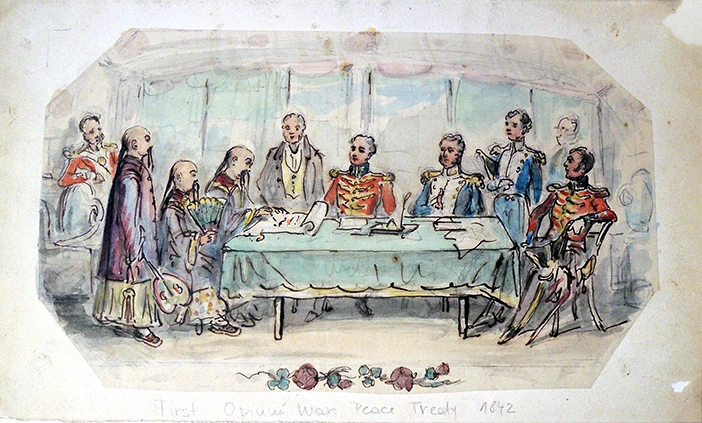
Zoom: 100%
Watercolour sketch related to the First Opium War, attributed to George Cruikshank. (Princeton University)
Treaty of Nanking: Ends First Opium War
August 29, 1842, the Treaty of Nanking ended the First Opium War, ceding Hong Kong Island to Britain and opening treaty ports. As British subjects at the time, Canadians were indirectly impacted by concessions granted to Britain. This treaty, one of the 'unequal treaties,' had long-term consequences. Subsequent treaties, like the Convention of Peking (1860), further expanded foreign influence and facilitated an increased presence of Westerners, including Canadians, in China. At the same time, Canada—still a colony within the British Empire—was also participating in the signing of unequal treaties with Indigenous peoples in what is now Canada, reflecting the global reach and contradictions of imperial policy. For Canada, this notably paved the way for Canadian Christian missionaries from denominations like the Presbyterian Church to establish a more significant presence in China later in the 19th century, engaging in evangelistic, educational, and medical work, forming early links between the two regions, albeit under a colonial framework.